If BoardGameGeek is to be believed, players these days mainly want elaborate, complex games. Simple card games are seen as something prehistoric by some board game fans, but a simple card game is sometimes just good, old-fashioned fun. Additionally, some card games are surprisingly innovative. Consider, for example, CuBirds with those cute little square birds and an refreshing game mechanic. Cubism, an art movement from the beginning of the last century, might already be a fossil. Is the artstyle of CuBirds cubist? Art historians will surely have a long-winded dogmatic negative answer to this, but at the very least the game features a lot of square birds. Thanks to Jurassic Park, I learned that birds are descended from dinosaurs. Time to dig up Cubism and those other fossils and do some experimenting with DNA and game mechanics. The result? CuboSaurs.
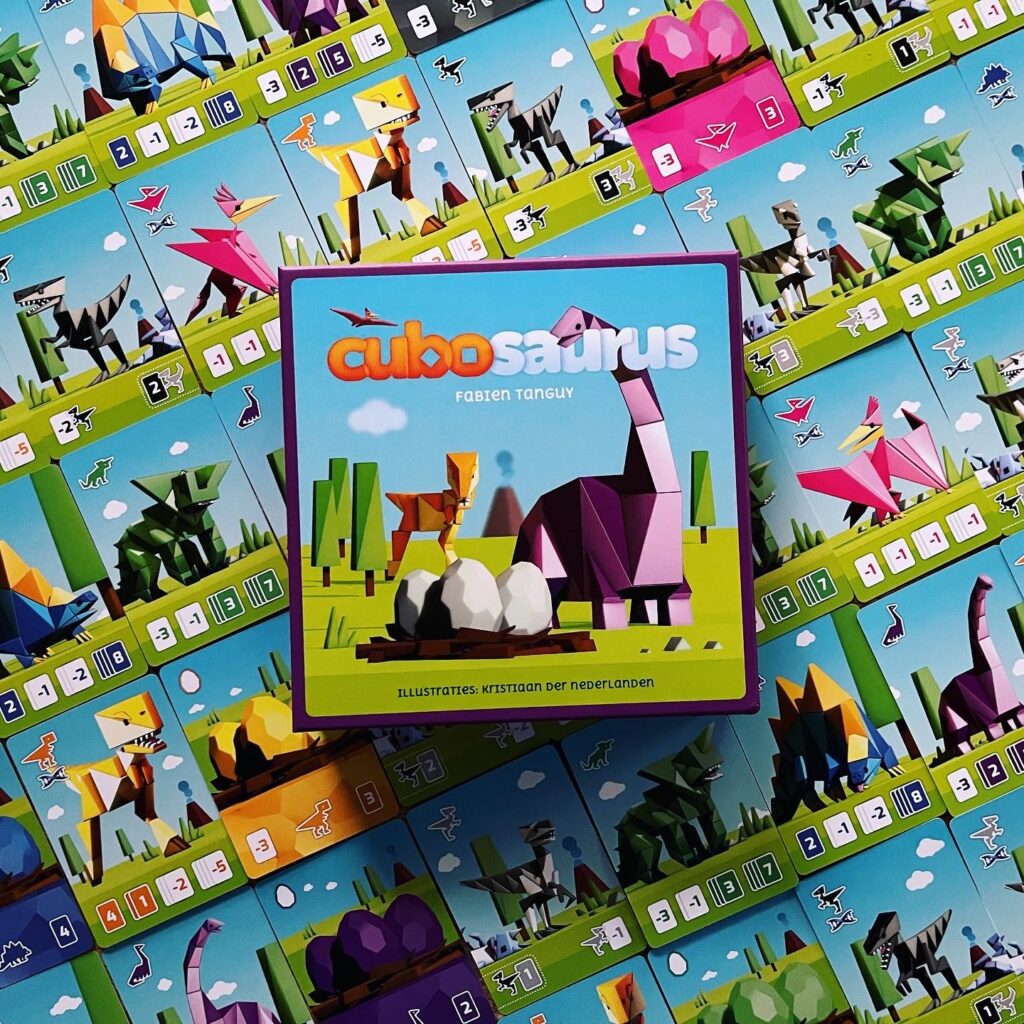
Background
The game CuboSaurus could be called a spiritual sequel to CuBirds. It is not by the same game designer, but has other similarities. Both games, and Wild Cards for that matter, are simple card games where set collection is the most prominent game mechanism. All games are illustrated by Dutch illustrator Kristiaan der Nederlanden in a very angular fashion. In CuboSaurs, players do not collect birds but dinosaurs. They do this by dealing cards around the table. Some dinosaurs you may prefer not to collect and rather pass on.
Gameplay
In CuboSaurs, players will play two rounds or as many rounds as they have agreed upon. The player with the most points at the end of the agreed amount of rounds has won. Each round, depending on the number of players, a certain amount of cards is used to form the draw pile. Each player gets four cards in advance as the beginning of his or her herd. Live finds a way.
The different types of dinos all have a unique way in which they score points depending on how many dinos you have in your herd of that particular species. Some dinosaurs earn more points if you have more of them, some earn less, some earn more depending on the specific quantity and some earn only minus points. Besides dinosaurs, there are also nest cards with cute polygonal eggs. With these eggs you get points if you have the most dinos of a particular species. Don’t have the most? Then you are harshly penalized with minus points. A punishment of prehistoric proportions.
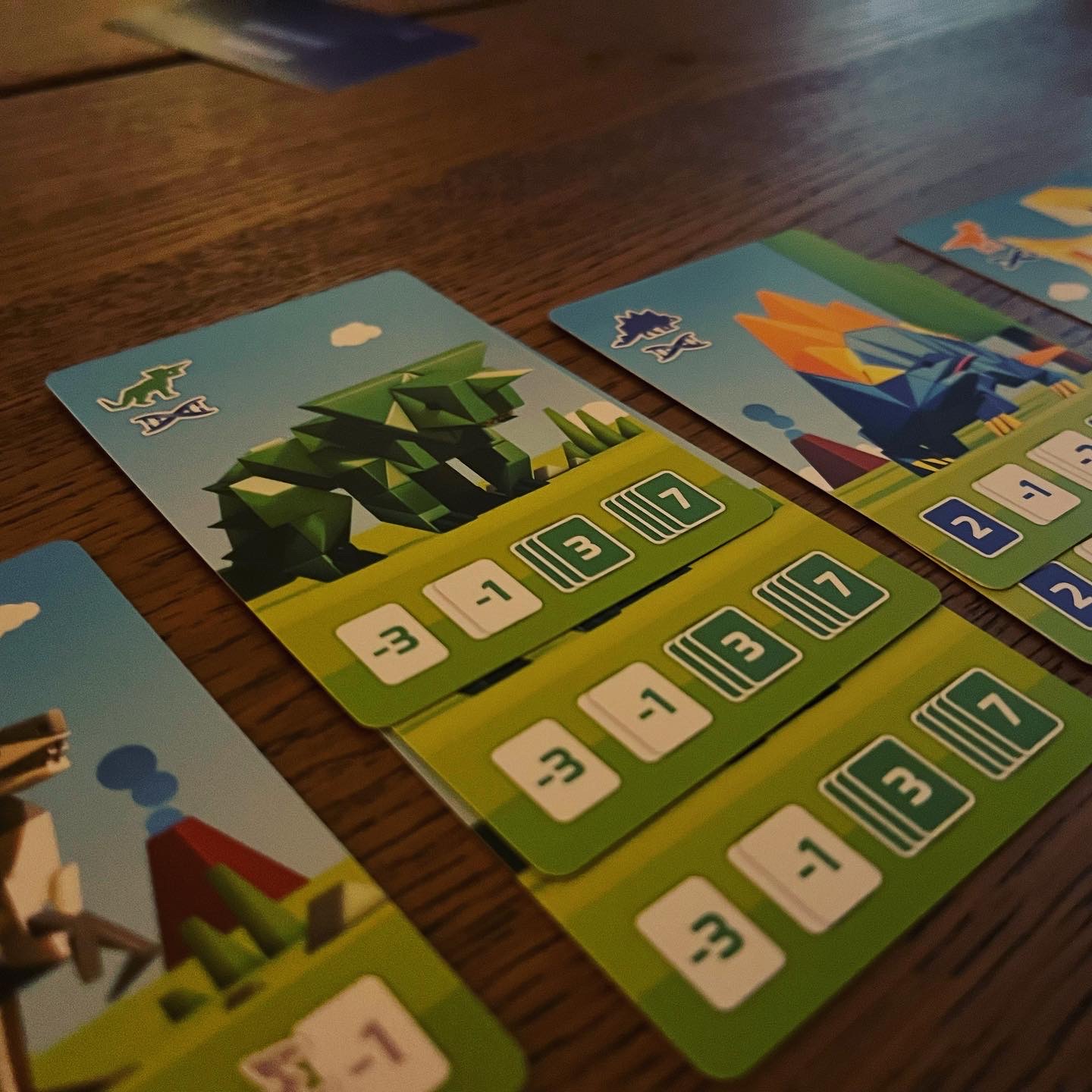
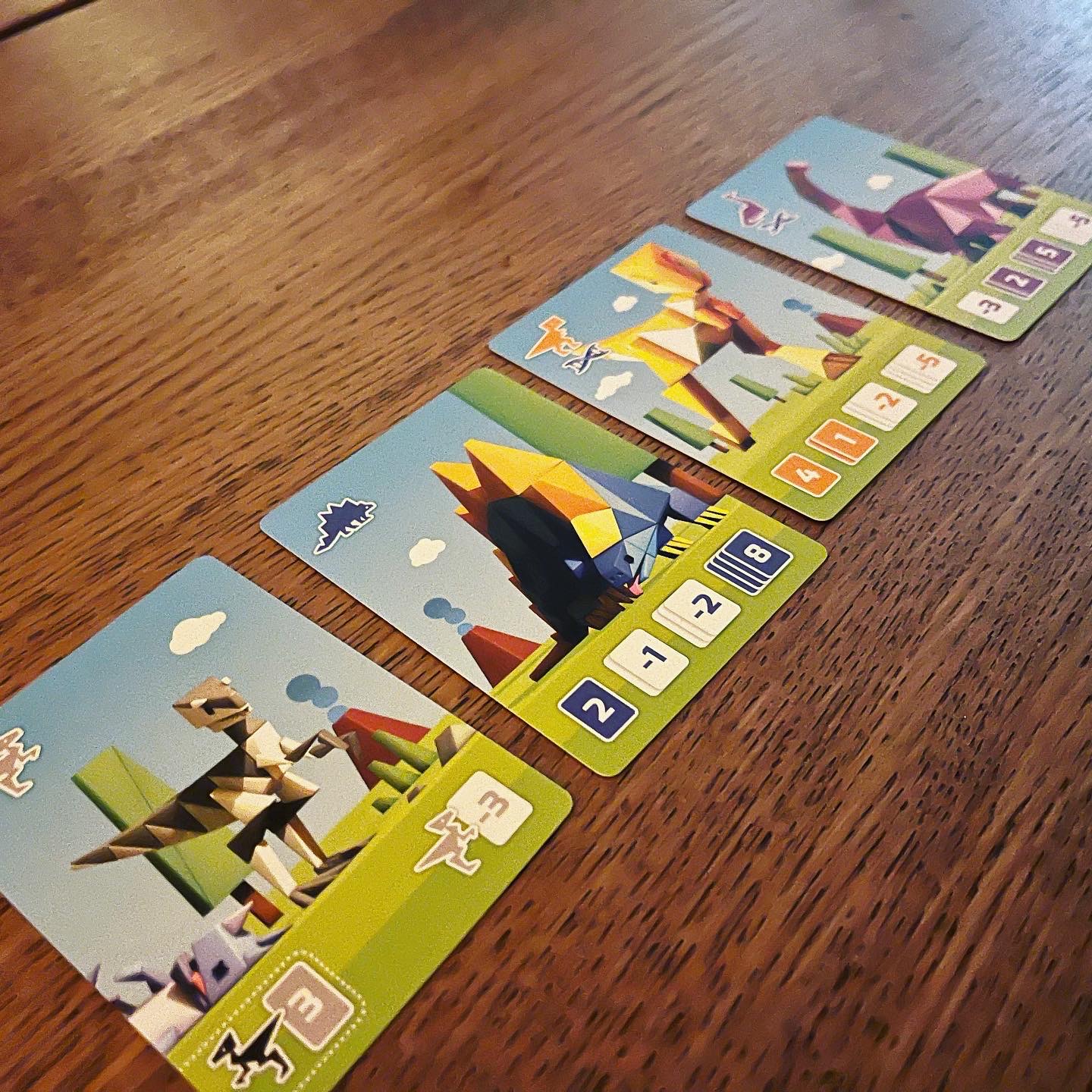
How exactly is CuboSaurs played? The player whose turn it is first checks whether he or she already has cards in hand. This sounds strange, but that becomes clear soon enough. If a player has no cards on hand yet, the player draws a card from the draw pile. Based on the card or cards in hand, the player decides whether he or she wants to keep or pass on those cards. If a player wants to keep the cards, the player places these cards directly to the herd. If the player wants to pass on cards, this player must also add a card that is currently part of his or her herd to the cards on hand before they may be passed on. This player may not add a card to a hand that already includes a card of that species. When passing, the cards are passed to the next player and then this player’s turn begins immediately. In this way, this next player already has cards in hand and does not draw a new card from the draw pile. If, during his or her turn, the active player decides to place the cards in front of him or her, then the next player begins his or her by drawing a card from the draw pile.
The fossils among CuboSaurs players can add some additional rules to make the game a little more challenging. Some cards have a DNA symbol. Collecting these cards gives you DNA tokens that you can turn in during your turn for tiles with special effects.
Verdict
Players try to save certain cards and get rid of other cards during CuboSaurs. Some cards may give them minus points and, in the right combination, actual positive points. As a result, players have to judge which cards they expect to encounter. Some cards you preferably like to pass on if you think there is little chance of scoring points with them, or if you think you will annoy another player. “You didn’t ask for reality; you asked for more teeth!”
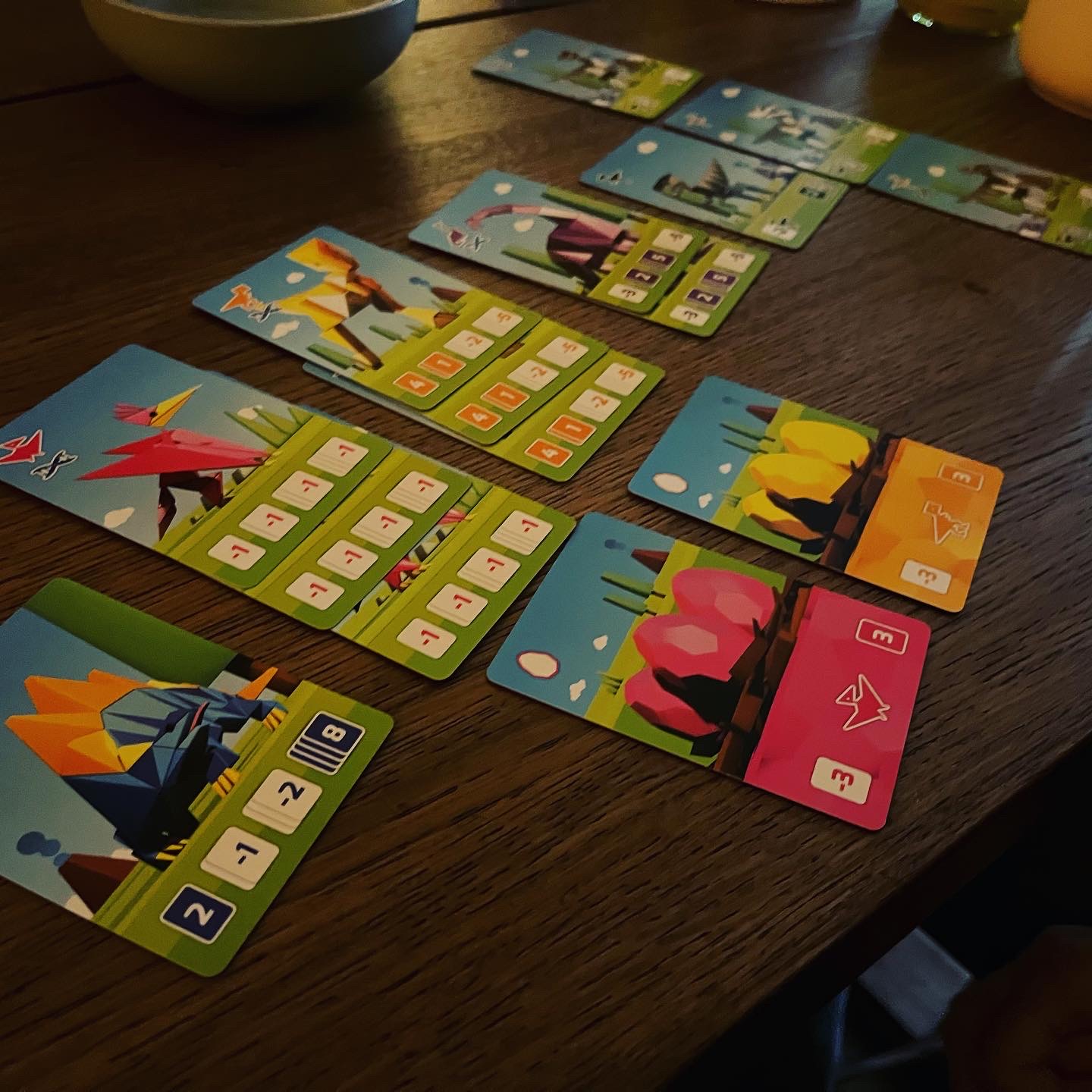
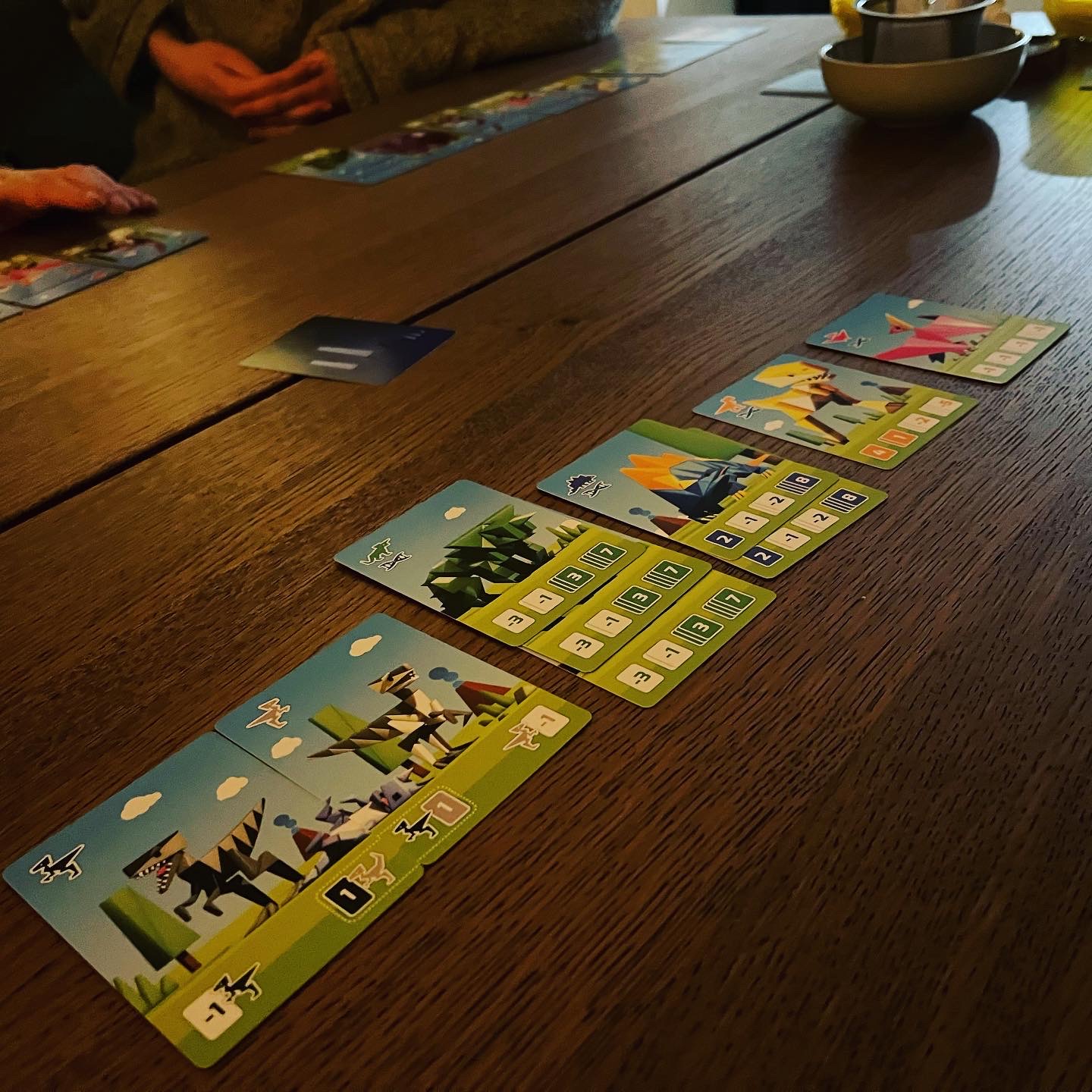
CuboSaurs is easy to explain and the rounds are so short that you can easily play several rounds in a row. The scores of a round can vary greatly, but this is easily solved by playing multiple rounds in a row, so that these scores easily level out again.
I think the way players collect cards is original and also very refreshing. The fact that you can only pass on received cards if you also include a card from your herd gives the game a nice tactical charge. This makes Cubosaurus a fast and highly interactive card game. The first time may feel contradictory for less familiar players, as they like to collect and not pass around, but after a few games everyone has a good grasp of the game (and the type of cards). Fans of CuBirds will be in their element with these fossils.




